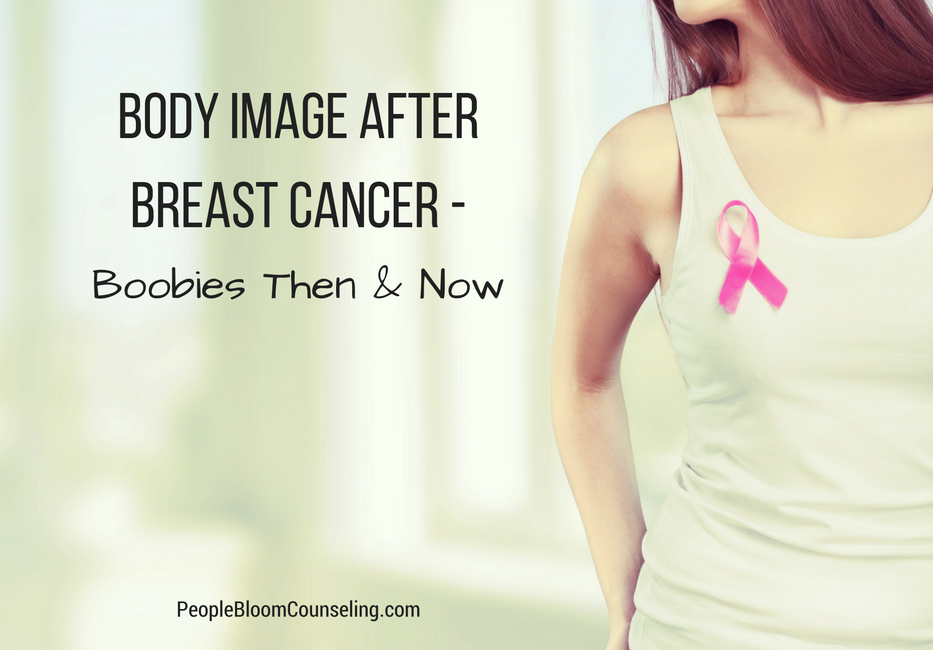BillionPhotos.com/stock.adobe.com
I've been doing a breast cancer series on the messy feelings of cancer and the fear of reoccurrence. Another common theme I see facing cancer patients is the feeling of being "disfigured or damaged" after breast cancer treatment.
Society's narrow definition of femininity
Let’s be honest here, our society has a general opinion about what constitutes femininity: thick lush hair and curvy body. There’s also something about a wrinkle-free forehead, better shaped brows, longer and thicker eyelashes and the list goes on. Wait, I should mention the many push-up bras and what?! A padded underwear? I had to look that one up. Needless to say, isolate any one of your body’s features and there’s a product or service to sell you because what you got, ain’t good enough. And that was pre-cancer.
Your body pre-cancer
You might not have bought into all the lies about what makes a woman beautiful, but let’s face it, none of us are immune to it. Whether you were satisfied with your body pre-cancer, or you were struggling with your body image, cancer treatment will rock your world.
Breasts
Boobies. You’ve got two of them, like you do two eyes, ears, hands, feet. No matter their shapes and sizes, they are visible to you, day in, day out. You look at them and they are a pair, a two-some, partners. As a society, we are fascinated with them. We are told they look better full (with no account for the back and shoulder problems they cause), symmetrical, and lifted and firm, and soft and supple to the touch. Aside from the visual aspects, women who became mothers and nursed their babies spoke about providing to their child nutrition, protection from illness, and a connection that, without one or both boobs, might be hard to rig up.
Breast surgery and radiation
In comes lumpectomy, single or double mastectomy and you lose fullness, symmetry and the ability to nurse on one or both sides. Radiation destroys breast tissue and often makes your breast more firm or “rubbery” in the long-run. Radiation also damages the milk ducts; stories of women who were able to breastfeed on that side are anecdotal. Whatever your boobs have meant to you, it’s time for a re-definition.
Breasts re-defined
Your boobies are yours. You’ve had them and you grew up together. You were on the monkey bars, went on field trips, pulled all-nighters, traveled, and shared them with someone you love. They might not have turned out the way you hope they would, but they were loyal to you and stuck by you through thick and thin. Now, they’re sick. Your good friends have fallen ill. Cancer cells are growing inside of them and in order to save your life, you have to bid goodbye to one, both or subject one to radiation. It’s hard to see them go or suffer. It’s like you’ve taken them for granted all this time. You don’t remember the last time you’ve given them close attention, complemented them or told them you love them just the way they are.
Post treatment and your boob(s) might no longer be there. If there, it has changed form and you’ve seen it suffer through the burn and rash of radiation. Whatever the state of your boobies, the soul of your boobies are still there. That spirit of love and companionship is still there. It has never left. If anything, it has grown stronger. You and your boobies have braved a very courageous endeavor, together. And, like before, you will continue forward, together. Whether you decide to seek reconstruction or not, it doesn’t change the fact that the spirit of your boobies live on. While your baby might have limited experience with nursing, you will bond with your child and they can learn all about your boobies, from you.
Compassion for your body
I don’t mean to be weird here; I’m speaking about self-compassion. Pre-cancer, people are often living busy lives, lugging their bodies around, subjecting them to caffeine overload, dehydration, stressful days and little sleep. We take our body's functions for granted, until something happens to them, then we give them attention. What if we take better care of our bodies and show more appreciation for our body’s features? What if we take the time to accept them rather than spend so much time covering them up, changing them, and rejecting them? What if we care for them, now?
Going forward
Just when I thought I could write one post on body image, I talked all about boobies. I will have to write a sequel on having a healthy relationship with the rest of your body post cancer treatment. In the meantime, if you are a breast cancer thriver and you need help extending compassion to yourself and caring for you, let me know!
Ada Pang, MS, LMFT is the proud owner of People Bloom Counseling, a Redmond psychotherapy practice in WA. She helps distressed couples and breast cancer patients. That can also mean couples distressed by a partner’s cancer diagnosis, or couples wishing to use their marriage as a resource during their cancer journey. When she’s not at work, she has found yoga to be a wonderful practice to nurture self-compassion.


